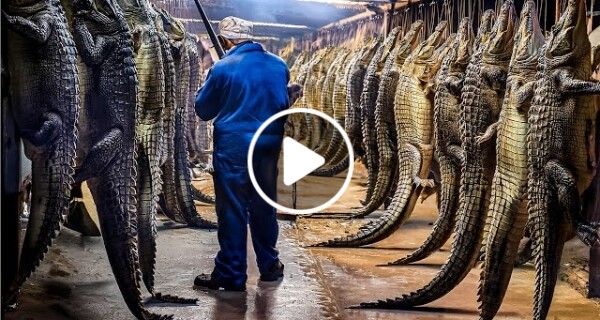Crocodile farming in China has emerged as a significant industry, focusing on the production of meat and skin from millions of these reptiles. This practice not only meets the growing demand for crocodile products but also contributes to the local economy. The technology employed in these farms has evolved considerably, allowing for more efficient harvesting processes and improved animal welfare standards. By utilizing advanced breeding techniques and optimized feeding regimens, farmers can ensure a steady supply of high-quality crocodiles, which are then processed for their valuable meat and skin.
The harvesting technology used in crocodile farms is designed to maximize yield while minimizing stress on the animals. This includes automated systems for monitoring the health and growth of the crocodiles, as well as specialized equipment for humane slaughtering. The integration of these technologies has led to increased productivity and sustainability within the industry. Furthermore, the use of environmentally friendly practices in waste management and resource utilization has become a priority, reflecting a growing awareness of ecological impacts associated with large-scale farming operations.
As the global market for exotic meats and luxury leather goods continues to expand, the crocodile farming sector in China is poised for further growth. The combination of innovative farming techniques and a commitment to ethical practices positions these farms as leaders in the industry. By focusing on quality and sustainability, Chinese crocodile farms not only cater to domestic demand but also export their products internationally, thereby enhancing their competitive edge in the global marketplace.
Animals Reunited With Owners After Years !.
Angry dogs vs mirror reaction.
I Survived The 5 Deadliest Places On Earth.

